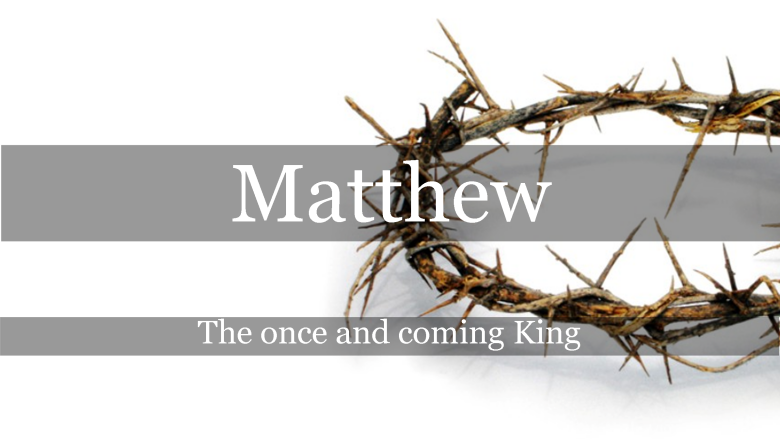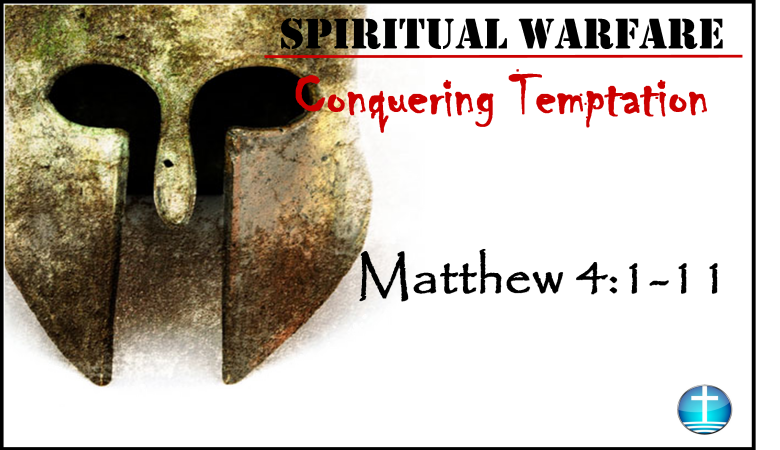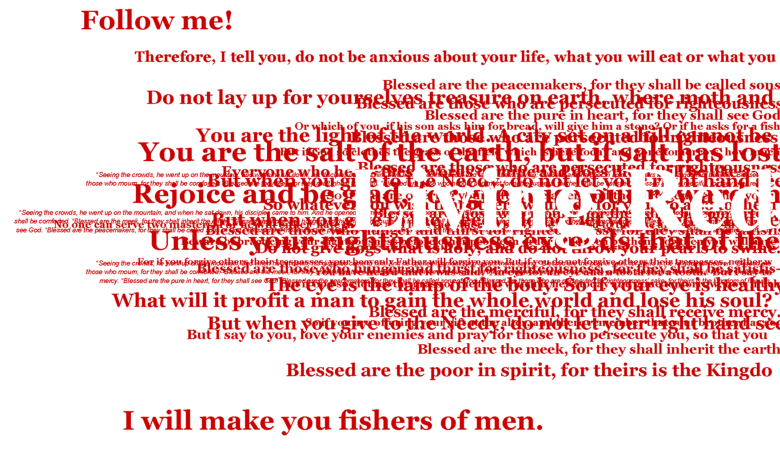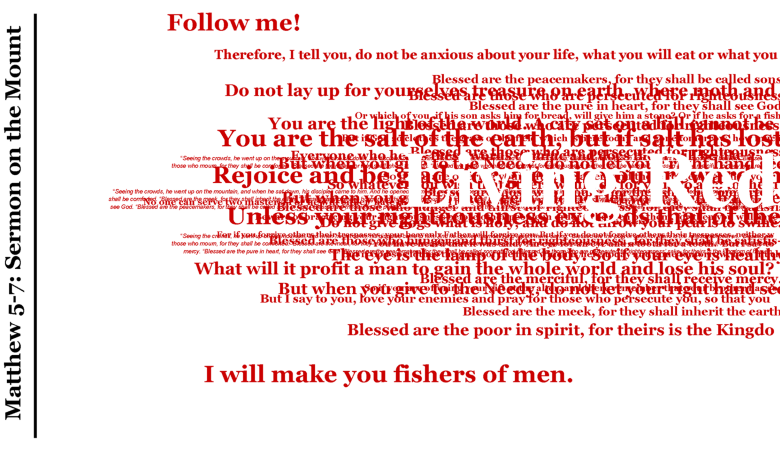Matthew 6:10b, Your Will Be Done
“Your kingdom come, your will be done, on earth as it is in heaven.” (Matthew 6:10, ESV)
It was the kind of faith strengthening miracle that you would always dream about seeing, on par with oceans being divided or mountains being moved. Unfortunately, this miracle, given as a reward for faith, would quickly be followed by a supernatural act of God’s anger and judgment, punishment for faithlessness and disobedience.
The doubting, distrustful and faithless King Jeroboam fears that he will lose his Kingdom if his people continue to travel to Jerusalem every year to worship the Father, so he establishes a new order of worship, builds new altars, erects shiny golden idols for the people to bow down to, and refuses to allow his citizens to go to Jerusalem to worship the Lord. This is a very precarious and dangerous situation for the people of the Northern Kingdom. Their faith will ultimately die if they do not have an opportunity to worship God. In order to rescue the helpless people of the Northern Kingdom from the spiritual danger that has been brought upon them by the doubting and faithless King Jeroboam, God sends a messenger to confront the wicked King and pronounce the ultimate destruction of the false alters and false places of worship.
“And behold, a man of God came out of Judah by the word of the Lord to Bethel. Jeroboam was standing by the altar to make offerings. And the man cried against the altar by the word of the Lord and said, “O altar, altar, thus says the Lord: ‘Behold, a son shall be born to the house of David, Josiah by name, and he shall sacrifice on you the priests of the high places who make offerings on you, and human bones shall be burned on you.’ ” And he gave a sign the same day, saying, “This is the sign that the Lord has spoken: ‘Behold, the altar shall be torn down, and the ashes that are on it shall be poured out.’ ” And when the king heard the saying of the man of God, which he cried against the altar at Bethel, Jeroboam stretched out his hand from the altar, saying, ‘Seize him.’” (1 Kings 13:1–4, ESV)
Such an act is dangerous, risking life and limb to deliver to a tyrant the truth of God’s Word, but the messenger of God faithfully and obediently declares to the King that the altar will be torn down and its ashes scattered, poured over all the earth. In a furious rage King Jeroboam points his finger at the man of God and shouts at his servants, “SEIZE HIM!” In that moment, God rewards the faith of the messenger and protects him, causing the arm of King Jeroboam to shrivel and dry up, so that he is not able to even bring his pointed finger or outstretched arm back to his body. He stands there, struck by God, and all the servants look at the messenger with fear.
What an incredible moment of history. These two men stand like actors on a stage demonstrating the stark contrast between good and evil, between faith and obedience verses doubt and disobedience. In one corner stands a wicked King who doubted and distrusted God, subjecting his kingdom to evil by preventing them from worshipping the Lord. In the other corner stands a man faithfully obeying God and trusting in God to protect him in the midst of a terrifying confrontation with a powerful ruler as he delivers God’s message. We have before us a great battle between obedient faith and obstinate unbelief. Who wouldn’t be eager to see God work such a supernatural act of protection as a reward for such faithful obedience? Who among us would not love to witness the miraculous and have our faith rewarded? Wouldn’t your confidence in God be incredibly boosted if you were to observe something like this?
Whimpering, King Jeroboam pleads with the messenger, “Please entreat the favor of the Lord that my hand may be restored.” The messenger then prays for Jeroboam’s hand to be restored, and in the moment the messenger prays, God restores life to the outstretched arm so that it is healed. Jeroboam then asks for the Messenger to have dinner with him, undoubtedly hoping to bribe or smooth things over with the God of heaven. But the Messenger replies to King Jeroboam,
“If you give me half your house, I will not go in with you. And I will not eat bread or drink water in this place, for so was it commanded me by the word of the Lord, saying, ‘You shall neither eat bread nor drink water nor return by the way that you came.’ ”” (1 Kings 13:8–9, ESV)
He has his instructions from God. He has just witnessed the supernatural work of God. He intends to do God’s will, and no persuasion from the King can alter his course. What an incredible triumph of faith. Sadly, here in this moment of faithful obedience to the will of God, disaster is about to strike, and God will judge the messenger for deviating from His will.
As the man of God was returning home, he was overtaken by a liar who lived there. The liar persuaded him to distrust and disobey the Word of God by pretending to be a prophet and declaring a false message, saying that it was okay to stay with him in his home. Without any further qualms, the man of God went with him, and his life was forfeited because of His disobedience. Because the Messenger trusted in the words of the liar, rather than in the message that God had given to him, the Lord speaks a word of judgement upon the messenger’s disobedience.
“Thus says the Lord [to the messenger], ‘Because you have disobeyed the word of the Lord and have not kept the command that the Lord your God commanded you, but have come back and have eaten bread and drunk water in the place of which he said to you, “Eat no bread and drink no water,” your body shall not come to the tomb of your fathers.’ ” And as he went away a lion met him on the road and killed him. And his body was thrown in the road, and the donkey stood beside it; the lion also stood beside the body.” (1 Kings 13:21–24, ESV)
What a tragic ending to a story that started so powerfully. The Lord’s messenger to King Jeroboam took bold steps of faith, obeyed the will of God, and watched the supernatural unfold before his very eyes as God protected him in the midst of trial, only to end up being eaten by a lion. What went wrong? What happened? How was it that he started so strong, having faith in God and obeying His will, only to be destroyed in the end?
Just like the Messenger in this story from 1 Kings 13, many of us start off strong with a growing faith in God and a desire to do His will only to find our spiritual life shrinking and shriveling with small but steady steps of disobedience. The Messenger should have done what we need to do. He should have prayed and asked God for help in doing His Will. This is why Jesus teaches His disciples to always pray, “Your will be done on earth, as it is in heaven.”
Exegesis: Help us to do Your Will Here as It is done Up There
In Luke 11:1 we are told that the disciples asked Jesus to teach them to pray as John the Baptist taught his disciples how to pray. We don’t have any record of John the Baptist’s prayer, but it is evident from Luke 11 that the disciples observed Jesus in deep prayer with God. Their observation of His prayer brought them to an awareness of the shallowness of their own praying. They don’t ask Jesus to teach them what to pray. Neither do they ask how to pray. They ask Jesus to teach them simply to pray. Now if you were to ask a teacher to instruct you in the method or manner of something, your expectation is that he would teach you from his personal experience and mastery of the subject. So our expectation of Christ is no different. This prayer is a model of the many prayers that He likely prayed himself. Here in Matthew 6 we have the Lord ’s Prayer, in full, given to us by Matthew, one of the disciples that asked the Lord to teach them to pray in Luke 11.
Jesus teaches them, after addressing God as “Our Father” and requesting that His name be made holy, that they should ask for God’s Kingdom to come and for God’s will to be done on earth as it is in heaven.
The verb “be done” is in the passive, which means that God’s Will is the thing that is to be accomplished. His will is to be actively done. Jesus teaches us that we are to routinely ask the Father that His desire be actively accomplished. This begs the question, “Why?” Why do we need to ask that God’s will be done here on earth as it is in heaven? The text implies that we, the ones who are making the request, are doubtful that God’s will is going to be accomplished. Since we are doubtful, we ask Him to ensure that it is done.
But why would we doubt that God’s purposes would be accomplished? After all, there are many places in Scripture where God firmly reminds us that He is in control of all things, and works all things together according to the counsel of His will. God proclaims to us through the prophet Isaiah, that He is, “God, and there is none like me, declaring the end from the beginning and from ancient times things not yet done, saying, ‘My counsel shall stand, and I will accomplish all my purpose,’” (Isaiah 46:9b-10, ESV)
It can only be because we have become aware of our own frailties, and we know that we easily disobey God’s will. Because of this Jesus teaches us that we are to seek God’s help in order to accomplish His will daily through prayer. This means that we are asking God to help us to be obedient to doing His will in every situation that we come across.
What is Disobedience? What does that look like?
“And Samuel said, “Has the Lord as great delight in burnt offerings and sacrifices, as in obeying the voice of the Lord? Behold, to obey is better than sacrifice, and to listen than the fat of rams. For rebellion is as the sin of divination, and presumption is as iniquity and idolatry. Because you have rejected the word of the Lord, he has also rejected you from being king.”” (1 Samuel 15:22–23, ESV)
- Disobedience is rebellion and it is the same as divination or witchcraft.
- Presumption is doing anything without considering if it is God’s Will and it’s the same as iniquity or rebellion, and God considers is equal with full-blow idolatry.
Presumption and disobedience are the same, and they put you on the same side of the fence as Satan. To be on the wrong side of God’s Will is to be in the same place as Satan, and so the Scripture does not hesitate to condemn even the smallest of disobediences as witchcraft or idolatry.
Illustration: Keep our Train on the Tracks!
So we need to ask God to help us to do His will. Asking God to help us to do His will is the same as asking God to keep us from witchcraft, divination and idolatry.
It’s as though we are praying to God and asking Him to help us keep our train on the train tracks. We don’t want to go off the train tracks. We don’t want to derail our train. We want to keep our life moving down the track, and we know that we need his help to keep our train on the track because our natural tendency is to jump track at every possible opportunity.
Some may say, “Well, why can’t we have the freedom to jump track whenever we want?” Some may object to the thought of needing to adhere to the Will of God, believing that we should have the freedom to roam and wander as we please. Many object to the idea of following closely the will of God the same way that a train follows the train track.
It makes all the difference in the world whether the thought of the God’s Name or that of God’s Will is most prominent in our minds. If we begin to think about God primarily in terms of His Will, then our religion will be slavish: a dull, sullen resignation, or a painful, weary round of unwelcome duties and reluctant obedience. The will of an unknown God will be in our thoughts as a dark and tyrannous necessity, a mysterious, inscrutable force which rules by virtue of being stronger than us, and demanding only obedience. There is no more horrible conception of God than that which makes Him merely or mainly a sovereign will to be ruthlessly obeyed.
But when we think first of God as our Father and, as a good and kind Father, desiring that His Name should be known then our thoughts of His will become reverent and loving; we are sure that the will of the self-revealing God must be intelligible, we are sure that the will of the loving God must be good. Then our obedience becomes different, and instead of being slavish it becomes a family devotion; instead of being reluctant submission to a mightier force our obedience becomes a glad conformity to the fountain of love and goodness; instead of being sullen resignation our obedience becomes a trustful reliance; instead of being painful execution of unwelcome duties, our obedience becomes the spontaneous expression of love. He who begins with ‘Your will be done’ is a slave, and never really does the will at all; he who begins with ‘Our Father, hallowed,’ is a son, and obeys from the heart.
The Messenger who confronted King Jeroboam needed to depend upon God as a protective, loving and kind Father rather than executing his duties from a superficial conviction of right and wrong. The Messenger should have remembered that God the Father had placed him on a train track that would take him to a happy destination, albeit through terrifying canyon and stormy weather, yet promising to deliver him to a happy destination nonetheless. We should pray that God will help us to keep our train on the tracks.
Argumentation: Jesus Prayed for Help in Doing God’s Will
You may be thinking that it is too easy for Jesus to tell us to do this. Easier said than done, right?
You may be thinking, “He’s God after all. It was easy for him to teach us to pray to God to help us do His will. Jesus had no choice but to do God’s Will because, after all, He was God. He never struggled to obey the will of God.”
Many imagine that Christ’s spiritual life must have been somewhat fixed and static. Since he was the Son of God, since He possessed the divine nature, and since he lived a sinless life, there could not be any sense in which Jesus “grew” in his spiritual life, or so it is thought. Indeed, many consider with regards to the spiritual life of Christ, that no growth is even possible.
At one level, there is some truth to this thought, but it is only a half truth. Since Jesus never sinned, and since he always did the will of his Father, he always enjoyed the unbroken approval of the Father and lived in a deep, unbroken intimate relationship with the Father. As John 15:10 declares, Jesus abided in the Father’s love because he always kept his Father’s commandments.
But I think you are gravely mistaken if you think this is the whole of the matter, because the truth is that the only way that Jesus was able to obey God and go to the cross was through constant prayer and persistent reliance upon the strength that God provided in order to obey fully. In fact, because Jesus was faithful to pray daily for the strength to obey the Father’s Will, Jesus spiritual life was the most dynamic and growing of all spiritual lives possible – precisely because he lived from his heart this life of unbroken obedience and submission to the Father’s will.
In other words, Jesus life of perfect obedience did not render his spiritual life as a static experience devoid of any growth. Just the opposite: because he obeyed the Father’s Will perfectly, including in times of opposition, agony, affliction and suffering, this perfect obedience actually resulted in the most profound and radical spiritual growth – a growth of faith greater than anyone has ever experienced.
“In the days of his flesh, Jesus offered up prayers and supplications, with loud cries and tears, to him who was able to save him from death, and he was heard because of his reverence. Although he was a son, he learned obedience through what he suffered. And being made perfect, he became the source of eternal salvation to all who obey him,” (Hebrews 5:7–9, ESV)
THIS PASSAGE REFERS TO JESUS STRUGGLING TO OBEY THE WILL OF GOD AS A MAN
It must be referring to Him living his life here on earth from his human nature. This is a reference to Jesus living his earthly life fundamentally, although not exclusively, but fundamentally – for the most part living his earthly life out of His human nature and not out of His divine nature.
- All four of the Gospels mention the descent of the Holy Spirit upon him at his baptism.
- Luke in particular makes repeated and frequent mention of the fact that Jesus performed his miracles, conducted his healings, and was empowered for his confrontations with the religious establishment by the Holy Spirit, and that he relied upon the Spirit and not on his divine nature for these activities.
- If this reference to Jesus in Hebrews is not a reference to him living out of his earthly, fleshly nature, then the concepts of his learning what he did not know and “being made” what he was not previously do not make any sense.
“Jesus learned obedience through what He suffered.”
The context makes his perfectly clear that he prayed for help (supplication) desperately during his time on earth, and that God listened to him because he was sincere (reverent).
What does it mean, “Jesus learned obedience through suffering?”
- He lived in obedience knowing that obedience would bring suffering.
Although Jesus was a son, and as a Son he deserved only honor, allegiance, adoration and respect from those with whom he dealt, he encountered from these very people much hatred and opposition. He was afflicted, scorned, ridiculed, and rejected by many people in many ways. And within this context of suffering, Jesus knew that his obedience to the Father’s Will would mean only continued and intensified suffering. Yet, despite the suffering he knew he would receive, he resisted the temptation to avoid suffering and to turn away from the Father’s Will and instead resolutely obeyed the Father every step of the way, no matter how hard things were. Indeed, Jesus learned to obey the Father’s every directive and command without fail or compromise.
“So Jesus said to them, “When you have lifted up the Son of Man, then you will know that I am he, and that I do nothing on my own authority, but speak just as the Father taught me. And he who sent me is with me. He has not left me alone, for I always do the things that are pleasing to him.” (John 8:28–29, ESV)
He obeyed the Father even at great cost, even though he knew his obedience would bring him only intensified pain, affliction, rejection, suffering, and ultimately an agonizing death from those who opposed Him.
- He learned obedience through what He suffered.
Hebrews is indicating that Jesus learned to obey the Father throughout His entire life with an obedience that was constantly rendered in increasingly difficult situations as he grew and developed. As the Son learned to trust and obey the Father in earlier times of “lighter” suffering – lighter that is, in comparison both to the divine demands and the suffering he would encounter in the end – these earlier experiences of faith in the Father’s provision, protection, and direction prepared him for the greater acts of obedience he would need to render as he got nearer to the time of the cross.
In other words, those earlier “obediences,” we might call them, under circumstances with lighter suffering and affliction, were prescribed by the Father as the training program necessary to prepare Jesus for the later and much harder obediences that were yet to come. He learned to obey increasingly difficult divine demands with their accompanying increasingly difficult opposition and affliction through the whole of his life, which prepared him for the greatest of all divine demands upon him and the greatest attendant suffering he would or could ever experience. In this sense, then, the difficulties and afflictions Jesus experienced through the whole of his life were planned by his Father in order to prepare Jesus for the greater – and indeed, greatest! – act of faith he would need to render to complete the Father’s mission for His Son.
Faith is Obedience that is Hard Fought and Hard Won! Faith is Obedience Learned Through Suffering!
We read here that not only did Jesus offer up prayers and supplications to the Father throughout his life (“in the days of his flesh”), but that He did so “with loud cries and tears.” Unless we trivialize this text, we have to conclude that the situations this verse points to are ones in which Jesus experienced agonizing hardship and difficulty in his endeavor to obey the Father. This indicates that Jesus trust in the Father and his dependence on what the Father alone would provide him was hard fought and hard won! Throughout his life he fought to believe and fought to obey and fought in prayer as he hoped in what the Father would provide. To put this point differently, Jesus’ faith and obedience during these times of testing, in which he offered loud cries and supplications with tears, were not easy steps of faith. It was not effortless obedience. Jesus’ obedience was not, in point of fact, automatic!
Jesus’s obedience was not automatic, as though his divine nature simply eliminated any real struggle to believe or removed the effort necessary to obey.
No, in his human nature, Jesus fought for faith and struggled to obey the Father’s Will. Otherwise, the reality that this passge is describing is turned into mere theatrics and rendered disingenuous.
The Dark Garden and Spiritual Maturity
Matthew (26:36-46) and Mark (14:32-42) both tell us that Jesus prayed three times in the dark garden of Gethsemane that the Father would remove the cup from him. Three times, also, Jesus declared that despite his deep and strong desire to avoid the agony of the cross, he longed even more to do the will of the Father, not his own will. Lukes account of the dark garden (22:39-46) adds the striking comment, “And being in agony he prayed more earnestly; and his sweat became like great drops of blood falling to the ground,” (vs. 44).
Given the fact that this was the greatest act of obedience he would ever render, requiring the deepest commitment of faith and hope in the Father, in light of the severest of all suffering he was about to encounter on the cross, does it not stand to reason that the Father had prepared Jesus for this moment through a lifetime of praying and obeying the prayer request, “Your will be done on earth as it is in heaven,”?
For many of us, this concept might be a hard to grasp, but I am firmly convinced that this is exactly what this passage is teaching. We may struggle to think of Jesus needing character formation, or needing to grow in his faith, or needing to learn to obey the Father’s will in the midst of suffering and hardship, but that is the only sense in which we could ever possibly understand the meaning of the phrase, “made perfect,” because any other interpretation of this passage results in heresy and denies the Gospel.
Jesus was made perfect by obeying the Father’s will. Obeying the Father’s will resulted in suffering which tested Christ’s faith, trust, confidence, and hope in God. To overcome that challenge and to resist the temptation of disobeying the Father’s will, Jesus prayed daily, “Our Father who is in heaven, hallowed be your name. Your Kingdom come. Your will be done, on earth as it is in heaven.”
Jesus received the strength to do the Father’s will through prayer.
Application
- There are no little obediences. Every opportunity given us by God, either to obey or disobey, is an opportunity for that character formation, that growing of our faith that can prepare us for the greater challenges of faith God has in mind for us in the future. The Father can only grow our faith to the degree that we are willing to obey Him, and our capacity to obey Him is limited by the strength and conviction that he supplies – which is why we must pray daily, “Your will be done.” Praying “Your will be done,” a prayer for courage and a prayer for strength, and ultimately it is a prayer for faith.
- Suffering and affliction are gifts granted to us by God for our growth, the necessary paving stones along the pathway that leads to our fullness of character and joy.
- The life of faith, of growing faith and strengthened character, is one that involves a fight for faith and enduring through difficulties. This life of faith is never lived on auto-pilot; it is never a life of passivity and ease; it isn’t something done to us without our full and active participation. These glimpses we’ve seen of Jesus – who offered prayers and supplications through loud crying and tears, who prayed three times in the dark garden for the cup to be removed, who taught his disciplies to pray every day for the father’s will to be done – give evidence to the active, deliberate, and intentional life of faith. Look carefully at Jesus. What you see is a man who labored to obey, who agonized in the testings the Father designed for him, who fought through the trials of life to maintain his integrity and obedience before His Father.
CONCLUSION
Faith always requires submission and obedience to the will of the Father. You have to repent from doing things your own way. You have to change your mind about living life your own way, and this change of mind is called “repentance.” Repentance means to change your mind and change your direction and walk the way that God wants you to walk. You can’t be saved without it.
Saving faith and repentance go together. A Faith that does not have repentance is a faith that will have to be repented of. All of us, all throughout our Christian lives, must pray daily “Father, your will be done on earth in my life as it is done in heaven.” Let’s pray.
Series Information

The Gospel of Matthew is a story about a once and coming King. Jesus of Nazareth is the Son of David, the long awaited for Messiah. He has come once, and Matthew tells the story of His arrival, ministry, sacrificial atoning work on the cross, and His promise to return soon.






